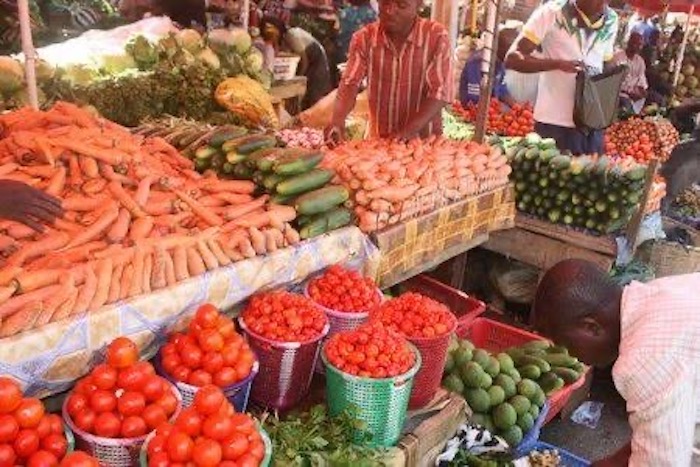In response to escalating economic challenges and reports of food hoarding, the Nigeria Customs Service (NCS), Nigeria Immigration Service, Department of State Services (DSS), and Economic and Financial Crimes Commission (EFCC) have initiated a nationwide crackdown on food smuggling, intensifying border surveillance efforts.
This comes after Organised Labour declared a two-day protest against the country’s current economic difficulties.
This crackdown follows an emergency meeting held on Thursday between President Bola Tinubu, Vice-President Kashim Shettima, and state governors at the Aso Rock Villa, Abuja.
During the meeting, President Tinubu directed security agencies to bolster surveillance at Nigeria’s land borders in Borno, Niger, Katsina, Sokoto, Kebbi, and Jigawa states, identified as “dark spots” for smuggling activities.
Expressing concerns over high food costs and economic hardships, President Tinubu dismissed the option of importing food as a solution. He emphasized the need to address smuggling activities that contribute to price hikes and economic instability.
According to sources within the Presidency, security agencies have uncovered sophisticated smuggling operations, including round-tripping schemes where food items are smuggled out of Nigeria and then reimported at higher prices.
The source said, “There is an ongoing inter-agency operation involving the Customs, DSS, EFCC and other agencies. They moved to grain markets, especially markets around northern Nigeria, and they were able to discover large-scale smuggling of grains outside of Nigeria and most of these grains are actually being round-tripped. So, there are cartels specialised in round-tripping food items across Nigerian land borders.
“What they do is that they buy grains, say from Jigawa, enter into Niger Republic with them, then bring them back and sell at higher prices, and they use foreign currencies, especially the CFA, so that they can be able to buy more food and then take it back to these countries and then bring back and sell here. So, it is a sophisticated smuggling chain. So, they (security agencies) have been able to bust a number of them.
“Now, the Federal Government has beefed up security across the borders to stop smuggling in Borno, Niger, Katsina, Sokoto, Kebbi, and Jigawa states because these are the major dark spots. Even yesterday (Thursday), at the President’s meeting with governors, the Niger State governor raised an alarm about these same cartels. That was why he recently announced the banning of food moving outside of his state.”
The security agencies have discovered huge amounts of stored food products, which were hidden by major companies under the guise of manufacturing feed and other items, according to the source.
The source explained, “One of the stores even contained about 50,000 tonnes of grains.
“A lot of the cartels have been busted in Kano, Borno and Katsina states. And in one-grain market alone, five illegal Bureau De Change operators were discovered and arrested. They were exchanging CFAs and naira and were being used by these cartels to move money easily.
“The government is going through a process to ensure that harmful hoarding is stopped. Of course, storage is permitted…but hoarding that harms the economy and creates hardship and hunger is being stopped.”
These operations have significantly disrupted food supplies, particularly in the North-West and North-East regions, where violence has hampered agricultural activities.
While 80 per cent of Nigeria’s grain is cultivated in the North-West and North-East regions, ongoing violence has significantly disrupted supplies. Additionally, statistics from the National Bureau of Statistics reveal that at least 63 per cent of the country’s 220 million population live in extreme poverty.
The Nigeria Customs Service has intensified border patrols and intelligence-driven operations to curb smuggling activities.
Abdullahi Maiwada, the Public Relations Officer of the Nigeria Customs Service, affirmed the agency’s commitment to implementing robust strategies to combat food smuggling, including engagement with local communities to raise awareness about the adverse effects of smuggling on the economy.
Maiwada said, “Last week, the Comptroller-General of Customs held a meeting with all area comptrollers in the border areas and he has given marching orders to man these borders and ensure that there is no form of smuggling in their territories. It is emphatic that we are taking action.
“We have re-strategise. It will warrant our presence, the use of intelligence-driven operations, and our visibility in terms of increased patrol and non-kinetic approaches such as engagement.
“It is not all about using force or our physical arsenals to fight smuggling. We are also exploring engagement with the populace to tell them why they should not support smuggling. In the next few days, we will reveal further strategies we are taking.”
Further details on the operational strategies adopted by the security agencies are expected to be revealed in the coming days as efforts to curb food smuggling intensify.



























